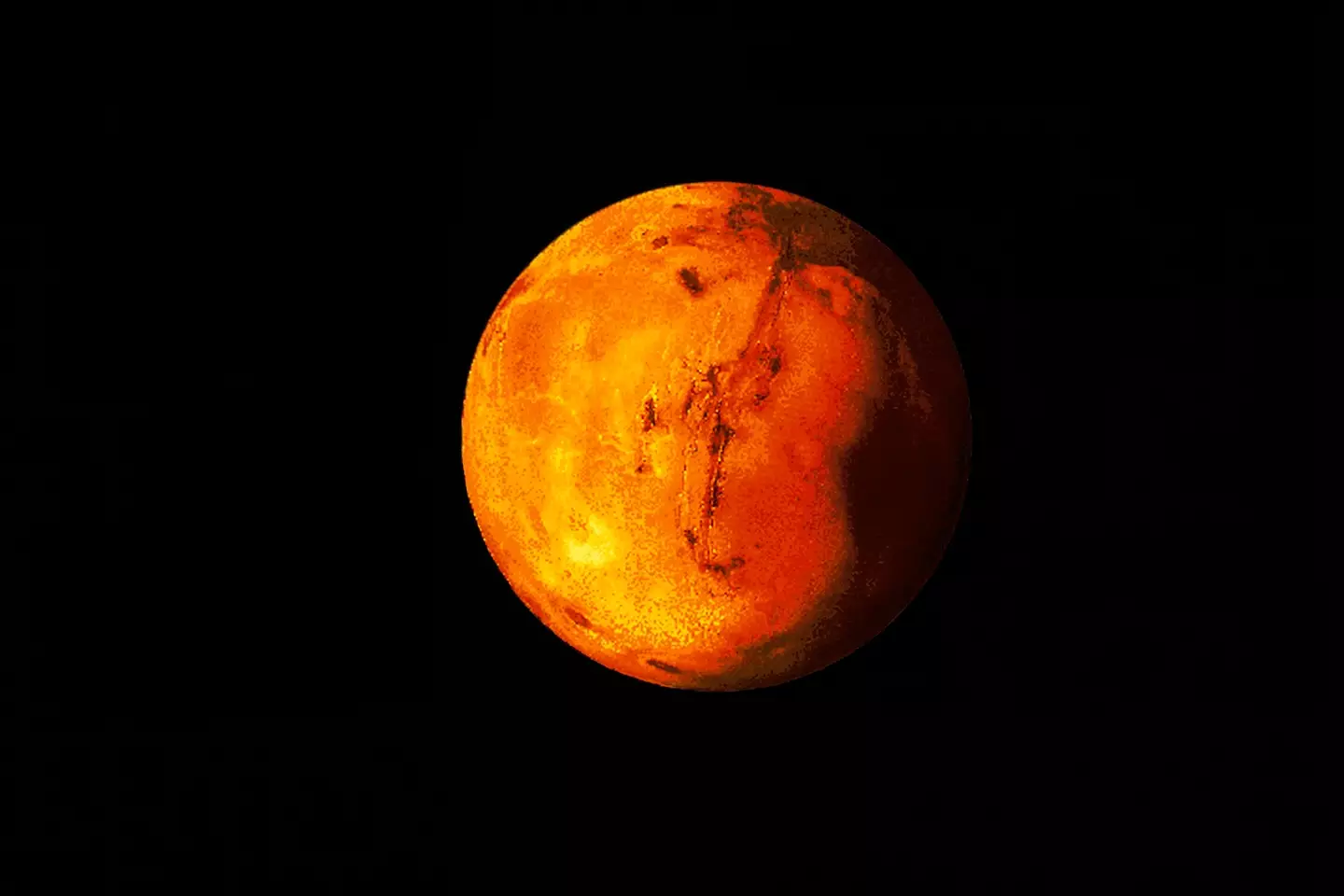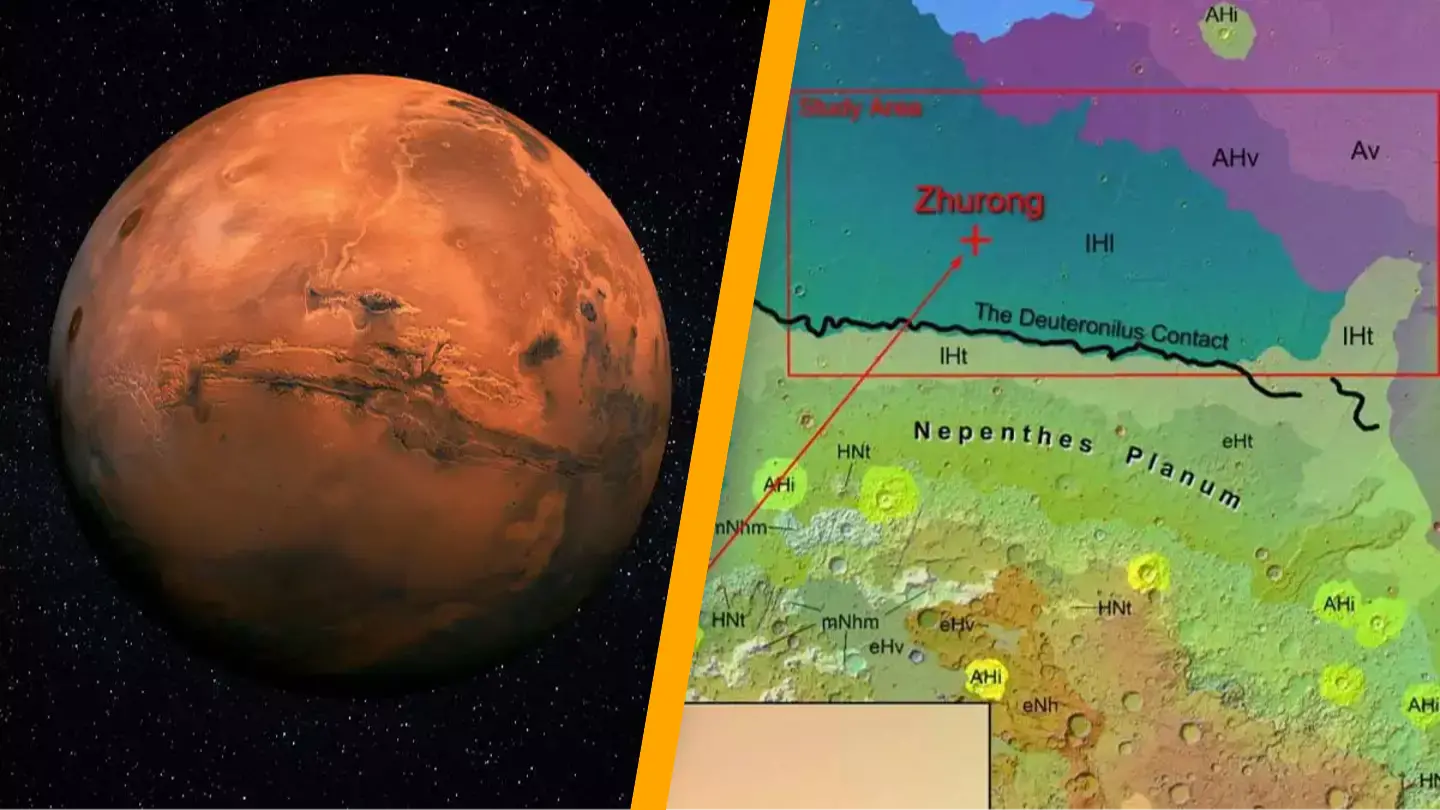Scientists believe they may have identified a crucial sign that life once existed on Mars.
The question of whether life ever existed on the Red Planet (and if it might still exist) has intrigued researchers for a long time.
The hypothesis that Mars could have once supported life dates back to the 1830s, leading scientists worldwide to engage in extensive research over the years.
Mars is considered a potential candidate for life as opposed to planets like Venus or Saturn due to its resemblance to early Earth.
There have been hints suggesting the presence of liquid water on Mars, a critical factor for supporting life as we know it.
In a study released in August, researchers reported evidence of a water reservoir located several miles beneath the planet’s surface.
However, accessing the supposed reservoir presents challenges as it lies 12 miles deep within Mars’ composition.
Recent advancements have furthered the investigation into the possibility of past water on the Red Planet.

Aided by the Chinese Mars rover Zhurong, which landed on Mars in May 2021, researchers at Hong Kong Polytechnic University believe they may have discovered evidence of an ancient shoreline in the Utopia Planitia region.
A study published on November 7, conducted by the university’s researchers, proposed ‘an evolution scenario of the nearshore zone in southern Utopia’.
What led them to this conclusion was the discovery of ‘pitted cones of mud volcanic origin’.
Other features in the Martian area under study included ‘an increased concentration of craters with pancake-like ejecta, polygonal troughs, and etched flows, indicating a greater presence of water’.
The ocean is thought to have vanished long ago, drying up approximately 260 million years in the past, according to Daily Galaxy.

As scientists continue their efforts to demonstrate Mars’ habitability, there are aspirations to eventually send human missions to the Red Planet.
However, similar to lunar missions, traveling to Mars could significantly impact human physiology.
A study conducted earlier in the year highlighted potential impacts on astronauts’ kidneys during a Mars mission.
Dr. Keith Siew, the study’s lead author, told The Independent, “We know what has happened to astronauts on the relatively short space missions conducted so far, in terms of an increase in health issues such as kidney stones.
“What we don’t know is why these issues occur, nor what is going to happen to astronauts on longer flights such as the proposed mission to Mars.
“If we don’t develop new ways to protect the kidneys, I’d say that while an astronaut could make it to Mars they might need dialysis on the way back.”

